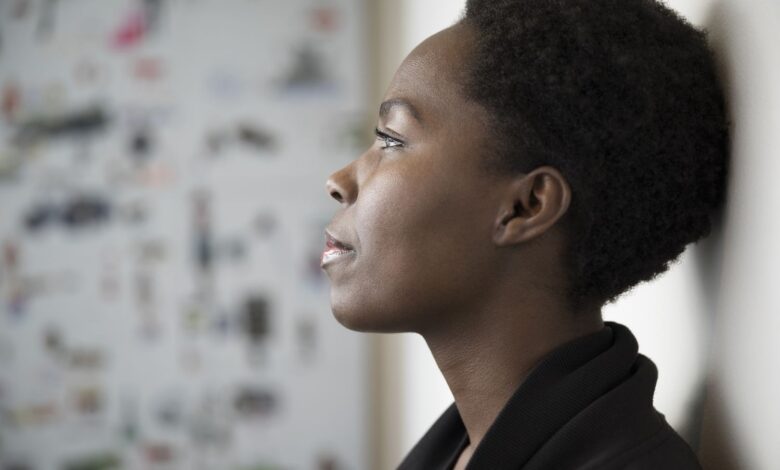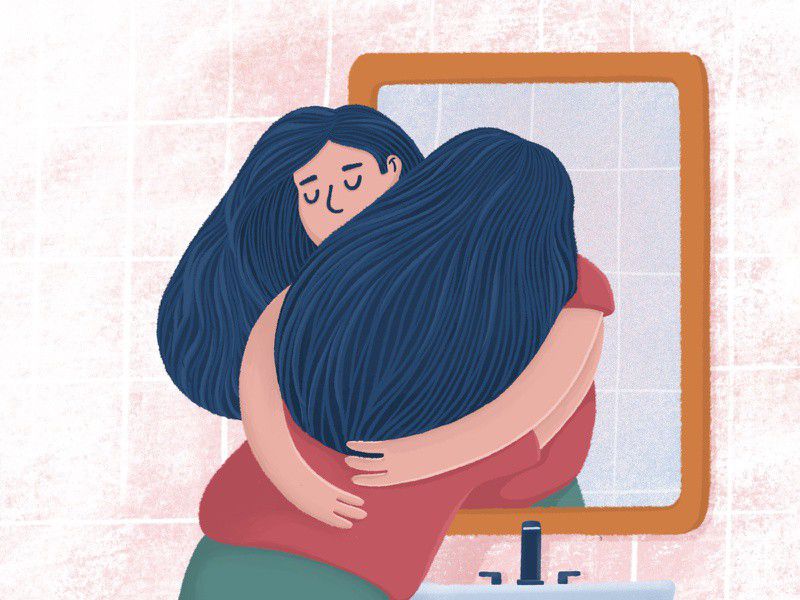4 types of people you must forgive to truly free yourself

Forgiveness is often misunderstood, isn’t it? It’s not about condoning harmful behaviour, simply forgetting past hurts, or even necessarily reconciling with the person who wronged you. Instead, it’s a profoundly personal and liberating act – a conscious decision to release the heavy chains of resentment, anger, and bitterness that can keep you tied to the past. Holding onto unforgiveness truly drains your energy, can negatively impact your relationships, and sometimes even manifest as physical discomfort.
To genuinely set yourself free and lighten your load, there are typically a few key figures (or archetypes of people) to whom you need to extend this powerful gift. It’s certainly not an easy process, but the peace it brings is quite simply immeasurable.
Here are four ‘people’ you must consider forgiving to truly unburden your soul:
People To Forgive
Seven-year-old Asomaniwaa Akoto Akrofi from Pentecost Preparatory School is inspiring Ghana as the country’s youngest football referee, officiating matches at the FIFA Women’s Football Campaign despite only discovering her passion for refereeing a few months ago. Here’s her intriguing story…
1. Yourself
This particular act of forgiveness is arguably the most challenging, yet undeniably the most crucial of all. We often find ourselves held captive by lingering feelings about past mistakes, perceived failures, missed opportunities, or the persistent feeling of not being “enough.” We might relentlessly replay scenarios in our minds, dwell on regrets, and punish ourselves with an excessively harsh internal critic. This self-blame, in many instances, can prove far more damaging than any external criticism we might face.

Why it’s essential: Forgiving yourself is essential to enable you to move forward in life without the burdensome weight of regret, to foster acceptance of your own inherent imperfections, and crucially, to allow you to learn valuable lessons from your experiences rather than being permanently defined by them. It’s about cultivating a deep sense of self-compassion.
ALSO READ: Do these 5 things to keep your sexual health in check without stress
How it helps you free yourself: This pivotal act breaks the debilitating cycle of self-punishment, thereby empowering you to confidently pursue new paths without the crippling fear of repeating past missteps. Ultimately, it lays a solid foundation of self-worth that is critical for all future endeavours.
2. Your Parents/Guardians
It’s a universal truth that no parent is perfect, and almost all did their utmost with the resources and understanding they possessed at the time. Nevertheless, many of us carry lingering hurts, unresolved disappointments, or a sense of unmet needs from our formative years. This isn’t about assigning blame; rather, it’s about soberly acknowledging the undeniable impact their actions – or perhaps their inactions – had on your development. Perhaps they were emotionally unavailable, overly critical, or simply lacked the capacity to provide what you fundamentally needed at certain critical junctures.

Why it’s essential: Forgiving your parents or guardians is essential to halt the perpetuation of unhealthy patterns that are often rooted in childhood wounds. It’s a vital step towards healing your inner child and subsequently establishing much healthier, more functional relationships in your adult life. It allows you to perceive them as fallible human beings, distinctly separate from your own evolving identity.
How it helps you free yourself: This act serves to sever the unconscious ties of intergenerational trauma, thereby liberating you from long-held resentments that can unwittingly sabotage your adult relationships. It empowers you to forge your unique path, unburdened by the legacy of past family dynamics.
READ ALSO: Is your talking stage partner love-bombing you? 6 clever ways to stay in control
3. The Person Who Profoundly Hurt You (Especially if They Never Apologised)
This category often represents the most bitter pill to swallow in the journey of forgiveness. It demands that you relinquish the often-held expectation that the individual will ever acknowledge their wrongdoing, express genuine remorse, or make any form of amends. This person could be a former romantic partner, a betraying friend, a persistent bully, or someone whose actions led to significant emotional or even physical trauma. Continually holding onto anger towards such an individual, paradoxically, harms only you.
Why it’s essential: It is fundamentally essential to forgive this individual to reclaim your personal power from them. When you consciously choose to forgive, you effectively prevent their past actions from continuing to control your present emotions and to dictate your future possibilities. This act is crucial for severing their lingering psychological hold over you.
How it helps you free yourself: This profound act liberates an immense reservoir of emotional energy that was previously consumed by resentment and bitterness, thereby allowing you to redirect it towards positive, constructive pursuits. It acts as a vital barrier, preventing that bitterness from contaminating other aspects of your life, and ultimately enables you to advance emotionally unencumbered.
READ ALSO: How Donald Trump’s proposed travel ban on Ghana could affect the US economy
4. The “Ideal” Version of Someone You Loved
This form of forgiveness isn’t necessarily about direct wrongdoing on another person’s part, but rather about the profound act of letting go of the grief and disappointment associated with unfulfilled expectations. This might involve a cherished friendship that gradually faded, a romantic partner who underwent significant personal changes, a mentor who ultimately let you down, or even a child who pursued a life path distinct from your aspirations. Here, you are forgiving the significant disparity between who you desperately wanted them to be (or who you genuinely believed them to be) and the reality of who they are or became.

Why it’s essential: It is essential to engage in this form of forgiveness to genuinely accept reality as it stands, rather than clinging desperately to a nostalgic or idealised version of a person or a past relationship. This acceptance creates space for authentic connection with who they are in the present, or alternatively, facilitates a healthy and necessary detachment if that connection no longer serves your well-being.
READ ALSO: Is your talking stage partner love-bombing you? 6 clever ways to stay in control
How it helps you free yourself: This process effectively releases you from the pervasive pain of ‘what if’ scenarios and persistent ‘if only’ laments. It fosters a deep sense of acceptance and, critically, clears the path for you to cultivate new, genuine relationships that are not weighed down by unrealistic or idealised comparisons to past expectations.
The Path to Forgiveness
It’s crucial to understand that forgiveness is rarely a single, definitive event; it is almost always a multifaceted and ongoing process. This journey typically involves acknowledging your hurt, allowing yourself to fully experience any accompanying emotions like anger or sadness, and then, most importantly, consciously choosing to release that emotional burden for your own inherent well-being. This path may necessitate professional guidance, such as therapy, or involve deeply personal practices like journaling, meditation, or quiet self-reflection. The ultimate reward, however, is an incredibly profound sense of lightness and freedom, enabling you to truly live in the present moment and confidently build a healthier, more fulfilling future.







